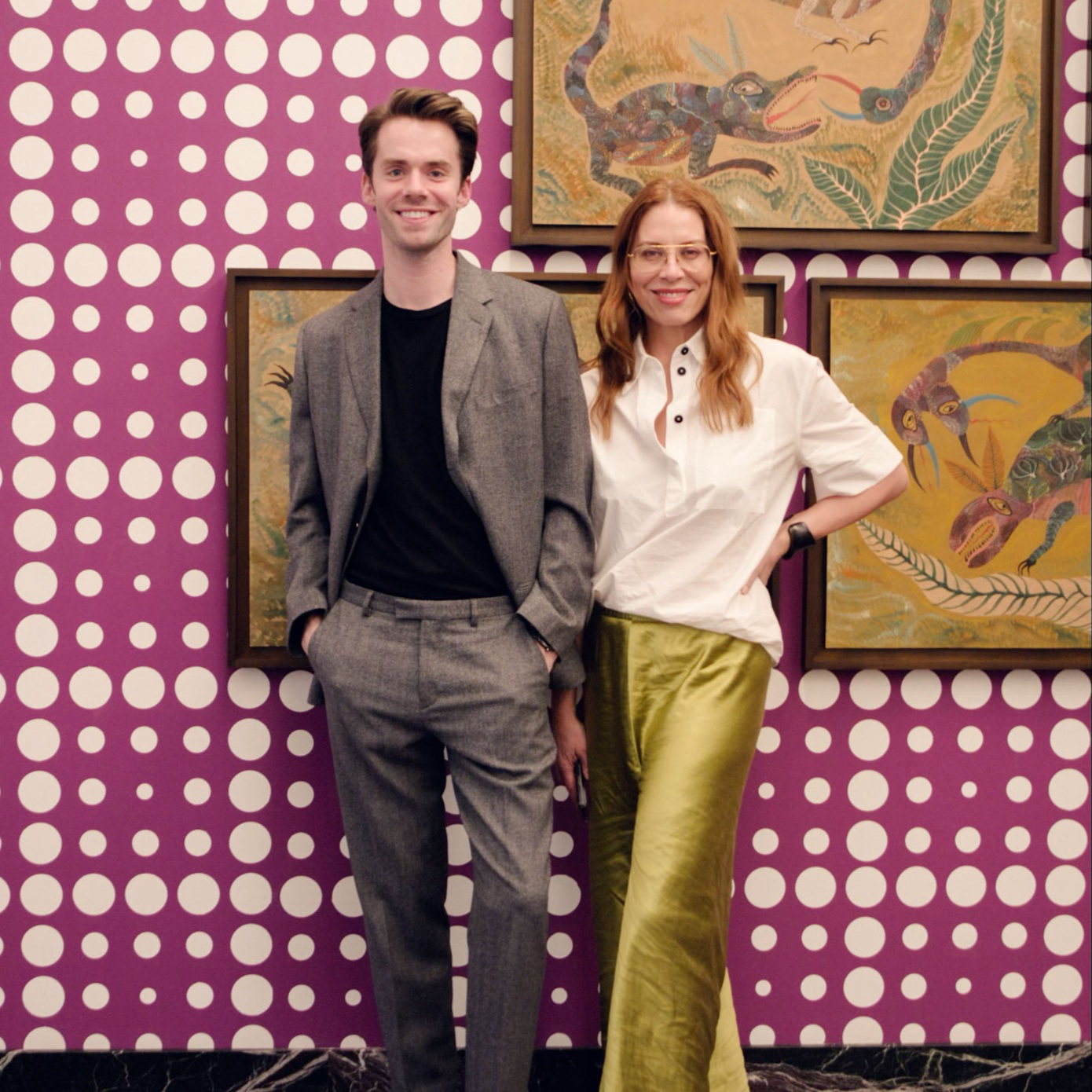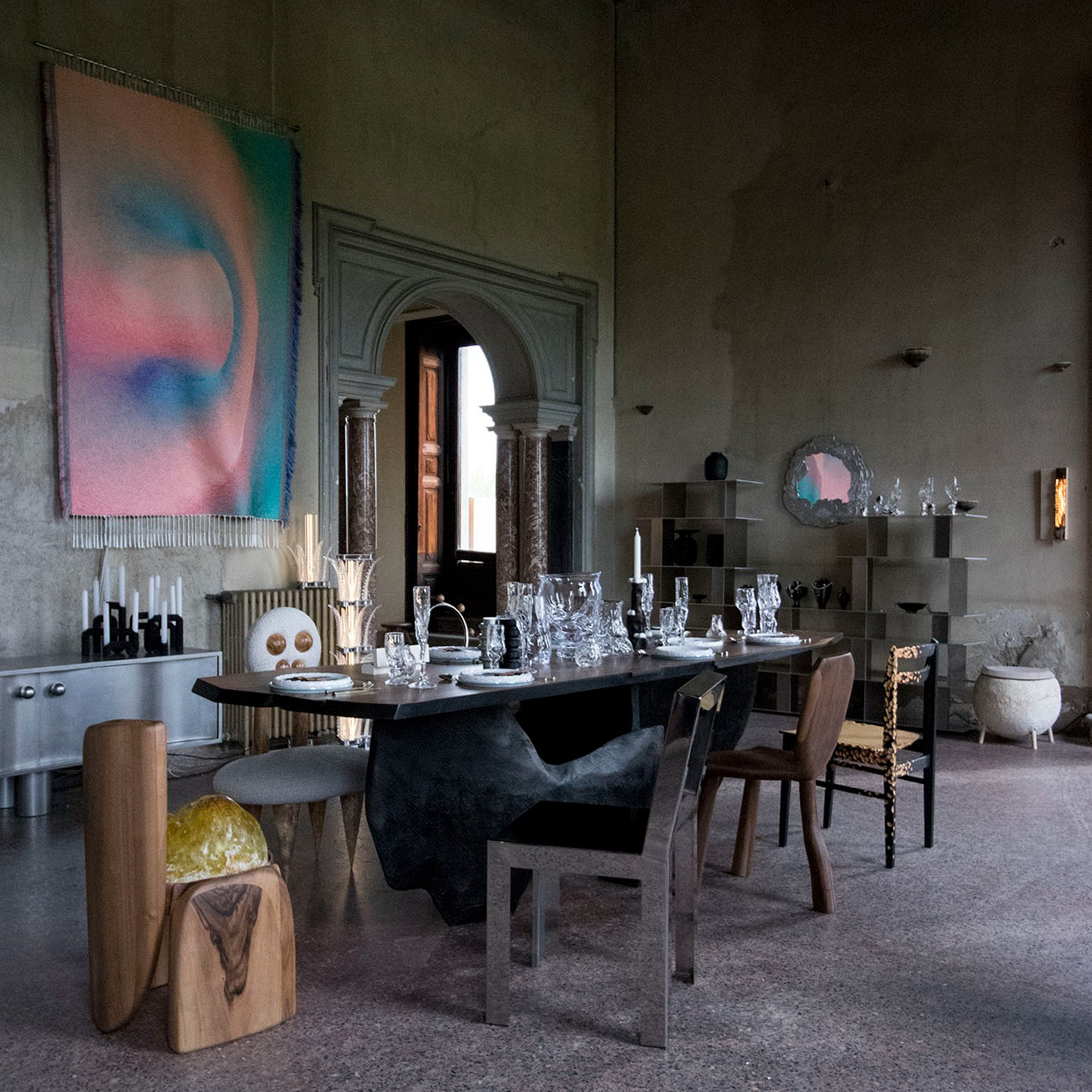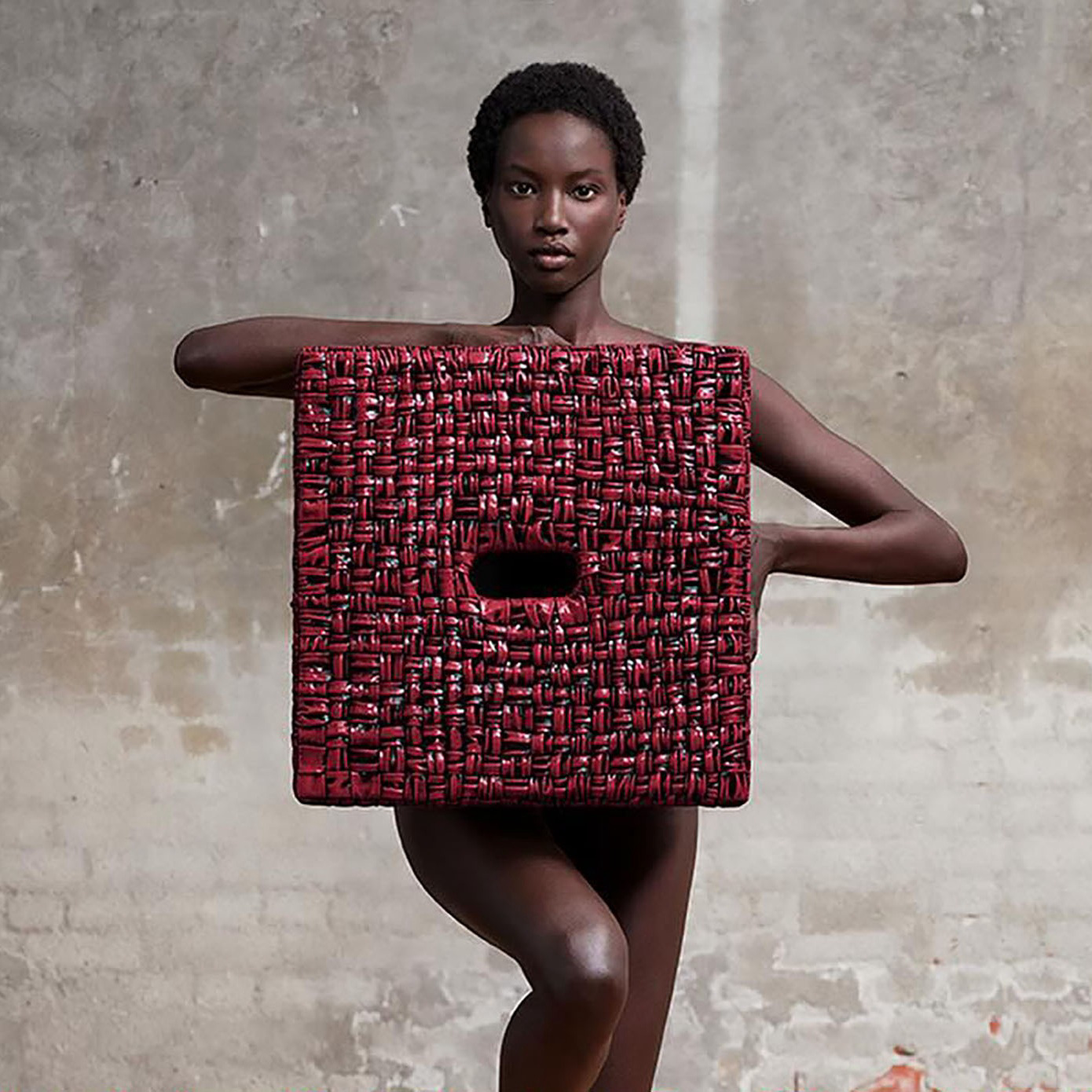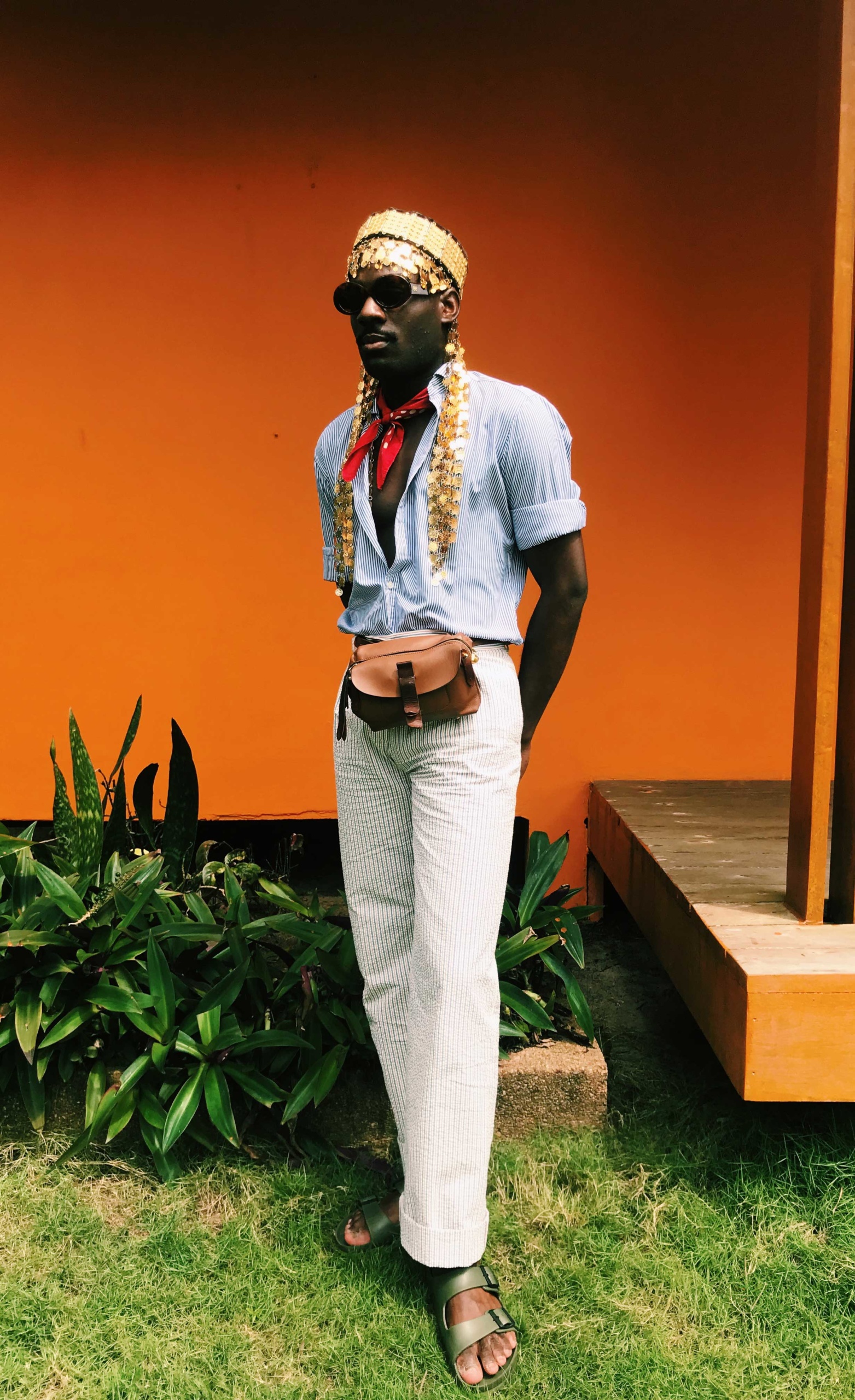
It all started with a post—a series of images of a young Black man with an original and vibrant look, at once futuristic and retro. The image was shared on Instagram by Franca Sozzani, the editor-in-chief of Italian Vogue from 1988 until she died in 2016, with the caption "He deserves front row at fashion week." Since that day, Louis Philippe de Gagoue's ascension can be explained by his ability to leave no one indifferent. De Gagoue has invented a character who embodies the height of his ambitions, and in his world full of fantasy, he is nothing less than royalty. "I started a blog ten years ago. It was very editorial. I've always loved to tell stories, and I've always been curious. I was working first with photographers before I became one myself. Franca Sozzani posted several pictures from my blog. I admired this woman; she was passionate, like her sister, Carla," recalls the twenty-nine-year-old stylist.
The multi-hyphenate’s style seems to mix that of Akeem, the prince of the fictional kingdom Zamunda, played by Eddie Murphy in the late 1980s classic Coming to America, with a taste of the avant-garde: vintage pieces meet African audacity. It’s impossible to miss De Gagoue with his golden crown, as if he has dubbed himself king. At every show he is targeted by street photographers and frequently appears in Vogue online. "I want to be noticed when I walk into a room. It is this presence that interests me. I don't filter what I say; I don't give a shit if you love me or don't," he says. But, in the blink of an eye, the world closed in on itself and 2020’s events were canceled. Who could have predicted the way the COVID-19 pandemic would unfold?
Raised between Côte dʼIvoire and Cameroon, the workaholic studied law in Tunisia while also traveling frequently to Dubai, Milan, Paris and anywhere that fashion and photography led him. During quarantine, however, he is spending his time close to home, in the Ivorian seaside resort town of Assinie Mafia. "I had to go home and work on Nikkou’s third issue. But, in reality, I couldn't do anything. It was a difficult time. I couldn't do photoshoots. Everything was closed, in France and in Côte d'Ivoire," he explains. In Assinie, De Gagoue leaves all artifices aside. It is not uncommon to see him dancing to electro-music around the pool in bathing briefs, disconnected from the world, except to occasionally feed his Instagram account with his trips to neighboring villages.
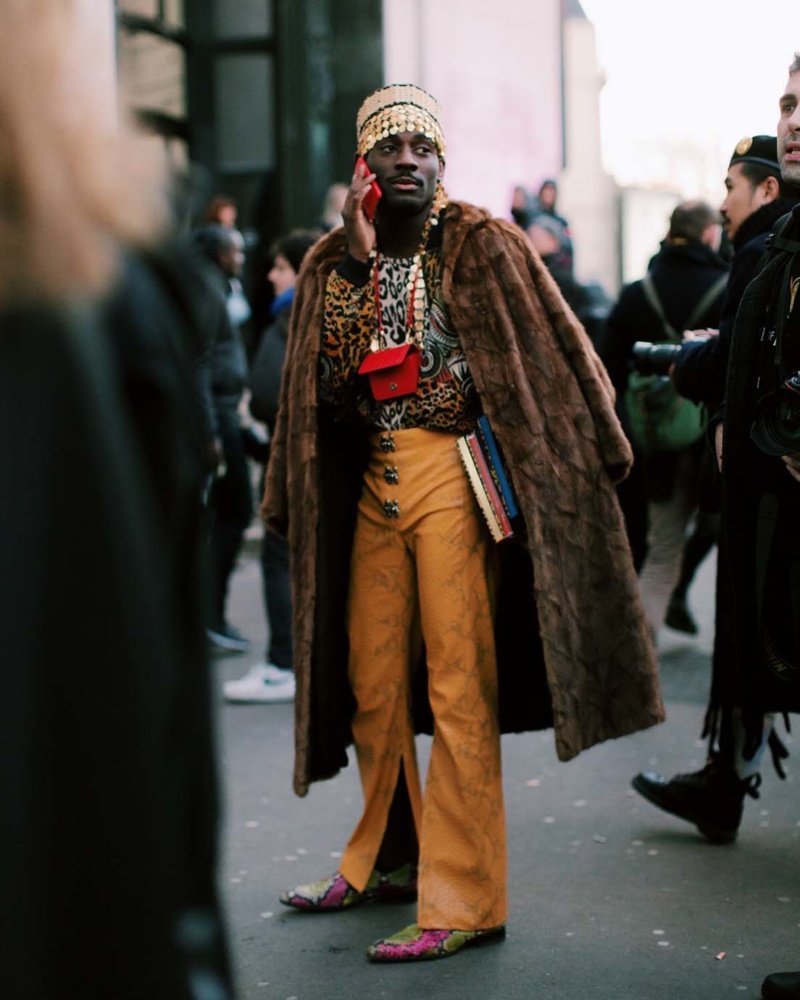
When De Gagoue has an idea, he goes all out. Nothing is left to chance: every detail, every word is important. Nikkou, his experimental magazine presented to resemble a coffee table book, opens up enclosures. "It's good to have a voice because, for years, Africa has never spoken for itself. It was always given special Africa editions, like an exotic trend. It’s good to have a multicultural and inclusive vision, a mature and mastered discourse of Africa. We need an Africa that represents all of that. For example, ‘Made in Italia’ is synonymous with prestige. But, in the collective consciousness, ‘Made in Africa’ is often seen as sloppy and mediocre. I want to show through my work that we have a strong vision and execute with quality.”
He also acknowledges the dramatic effect that the pandemic is having on African influencers and creatives, who depend heavily on their European partners. But despite the ongoing crisis, De Gagoue refuses to envision fashion as existing in a predominantly online sphere, and is skeptical about 3-D-rendered fashion shows and the recent influx of technology and digitalization. "Fashion is not just about clothing. The model gives life to the clothes. The world without human interaction is not fashion. Fashion is not a virtual industry; we are in the business of emotions. It doesn't make sense. Machines have no aura!"
His world collides iconic British model Naomi Campbell, South African pop singer Sho Madjozi and French TV personality Mademoiselle Agnès. He adds, without blinking, "You can't reduce my work to Afro-futurist, or Afro-something. I started this magazine because I didn't want to dilute my work. Fashion is not for the uneducated; you must master history to be able to mix genres and materials. There is no such thing as cultural appropriation at Nikkou, just cultures crossed and a celebration of beauty." Nikkou is more than a fashion magazine and De Gagoue is more than an influencer: together, they are a public message—one that urges the world to rethink art and culture while working to actively redefine the public perception of the industry, its history and its influences.

